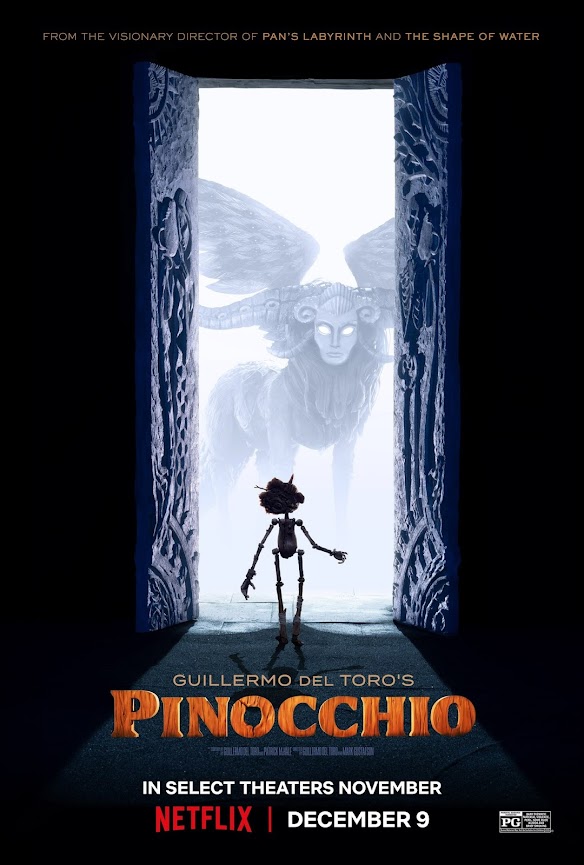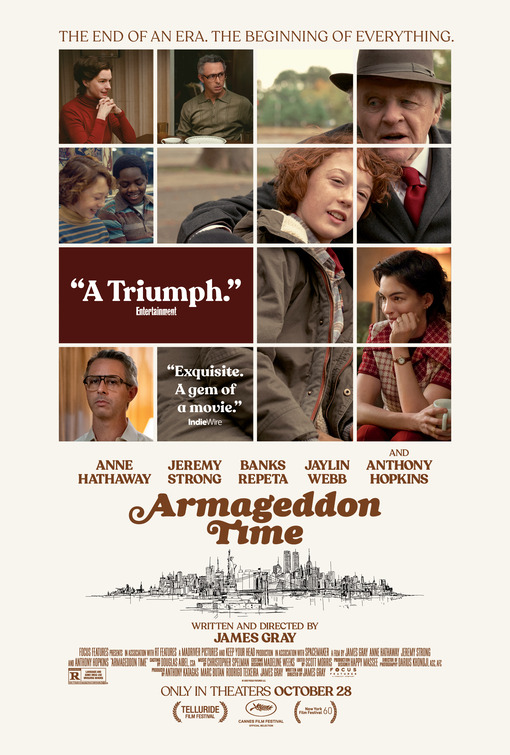They say "you can't go home again," but leave it to Steven Spielberg and writer Tony Kuschner to prove that axiom wrong, at least in the very specific circumstances of The Fabelmans. With this film, Spielberg has torn the veil of allegory and just made an autobiographical drama reflecting his upbringing. Broken families have always been a part of this man's work, but now we get to see the genesis of where that fascination came from. There's a version of The Fabelmans that becomes too insular, the cinematic equivalent to a therapy session we feel uncomfortable watching. Thankfully, much like in their prior collaborations such as West Side Story, Munich, and Lincoln, Spielberg and Kushner have knocked it out of the park with The Fabelmans. Whether you know a little or a lot about this man, The Fabelmans will surely work its magic on you.
The Fabelmans makes its potency and thoughtfulness clear from the very get-go in a scene depicting an adolescent Sammy Fabelman (Mateo Zoryon Francis-DeFord) nervously waiting in line to see The Greatest Show on Earth at the movie theater. The camera is initially positioned in a way so that we don't see his parents from the waist up, a perfect way to suggest that we'll be seeing this movie primarily through the eyes of Sammy. As he expresses constant nervousness about seeing a feature on the big screen, his parents, Mitzi Schildkraut-Fabelman (Michelle Williams) and Burt Fabelman (Paul Dano), try to console him in ways that reflect their individual personalities. Burt gets wrapped up in explaining how the film projector works while Mitzi just tells her son that movies are like dreams. It isn't long before Sammy is sitting in that theater and discovering how right his mom was. Movies are dreams...and he doesn't want this dream to end.
From here, The Fabelmans chronicles Sammy (who eventually grows up into a 16-year-old played by Gabriel LaBelle) as his passion for making home movies grows increasingly elaborate. This stand-in for the adolescent Spielberg is apparent in this youngster's love for shooting all kinds of films, but it's also clear in the increasingly tumultuous home life Sammy must navigate. As the scope of Sammy's homemade motion pictures expands, so too does the tension between his parents. Burt becomes so wrapped up in his work that he's constantly moving himself and the whole family (Sammy also has three younger sisters) while Mitzi is prone to depressive episodes. It isn't just the images on the silver screen that will mold Sammy's life. Familiar turmoil will also shape his worldview.
A few days before I saw The Fabelmans, me and a buddy were joking about corny ways this movie could show a young Spielberg stumbling onto the ideas for his future movies ("Wow, that shark sure has big jaws!") in the same vein that many actual music biopics like Bohemian Rhapsody deliver moments where musicians stumble onto the ideas for their most popular tunes. These dumb references were good for a laugh between pals, but they were also helpful in illustrating everything The Fabelmans does right. This isn't a film infatuated with making endless references that only Spielberg devotees will get or that attempts to provide a tidy narrative about how this filmmaker transformed into his recognizable self in the span of a weekend. In other words, there are no scenes like the one in Darkest Hour where Gary Oldman's Winston Churchill gets the name for Operation Dynamo by gazing at a nearby fan.
Instead, Spielberg and Kushner's script delivers a story that functions as a standalone work, with the events onscreen gaining extra (but not essential) resonance for those familiar with the former artist's background. The Fabelmans is much more interested in contemplating matters that are accessible to all audience members, such as contemplating how to juggle your passions and your loved ones as well as that never-ending process of realizing your parents are complicated human beings. The latter element is especially potent in how it's realized within The Fabelmans, with much of Mitzi's storyline focusing on how she's messy and imperfect rather than the postcard-ready image of a dutiful 1950s housewife. She's a human being. The idea that the people who raised you are in fact just ordinary people unsure of where to go or what to do is an overwhelming fact to consider when you first contemplate it.
The Fabelmans deftly explores that complicated idea with an equally nuanced portrait of a mother/son dynamic that can have you clenching your teeth in anxiety one second and softly weeping over their quiet interactions in the very next scene. These kinds of complicated character dynamics are made all the more compelling by Spielberg's enduringly impressive visual sensibilities. This guy's sense of framing never ceases to amaze me, even in a scene as simple as Burt trying to start a fire and his kids getting distracted by Mitzi's antics in a tree. This filmmaker and cinematographer Janusz Kaminski turn this moment into an extended single-take that, just by the blocking and use of depth in the shot, is incredibly detailed and informative about who these people are and their relationships with one another. The most seemingly basic scenes deliver a fountain of memorable imagery and vivid character details in the hands of this director.
It isn't just Spielberg and Kushner that excel in The Fabelmans. Everyone's in rare form here, particularly Michelle Williams, whose tasked with portraying a pastiche of Spielberg's mom. The bones of this performance sound like a recipe for a distracting caricature, including Mitzi's very distinctive voice (which often sounds like she's on the verge of tears) and the character's tendency for splashy displays of emotions. Williams tackles it all with such finesse, lending Mitzi the same level of believability as her performances in works like Wendy and Lucy or Certain Women. Traits that could've been distracting flourishes in another actor become organic parts of a compelling portrait of tormented motherhood in the hands of Williams.
Paul Dano is playing a much more soft-spoken, less outsized character than Williams, but he still leaves an enormous impression as the father of the Fabelman family while Seth Rogen wisely plays on his genial public persona while adding extra depths to that demeanor in his work as a dear friend of Burt's. Top to bottom, the whole cast is just marvelous, even when they only have one scene to shine, like Judd Hirsch in an unforgettable performance that reminds you why this Ordinary People star is such a treasure.
It's a very exciting indicator that you're watching a special movie when you realize you can consider its greatness from so many different angles. Visually, narratively, as an acting exercise, as something to make you cry multiple times, as the newest collection of John Williams compositions, or even in its forays into comedy (a scene with Sammy and a High School flame in the latter character's bedroom is so hysterical largely because of the very precise visual details in Spielberg's filmmaking), The Fabelmans works like gangbusters. It's a movie that's simultaneously far more than just a biography of Steven Spielberg's childhood yet it also offers so much insight into how his complicated persona as an artist was molded. I guess when you're Steven Spielberg, you actually can go home again.





